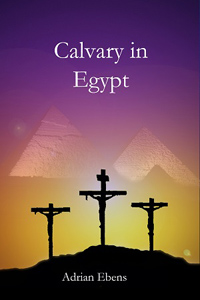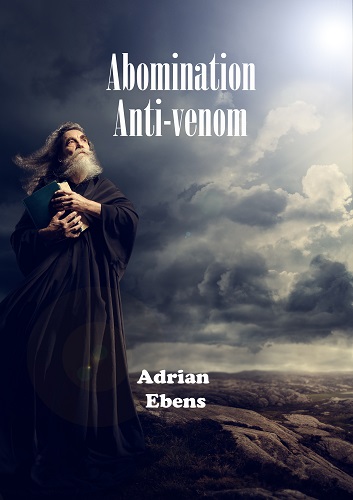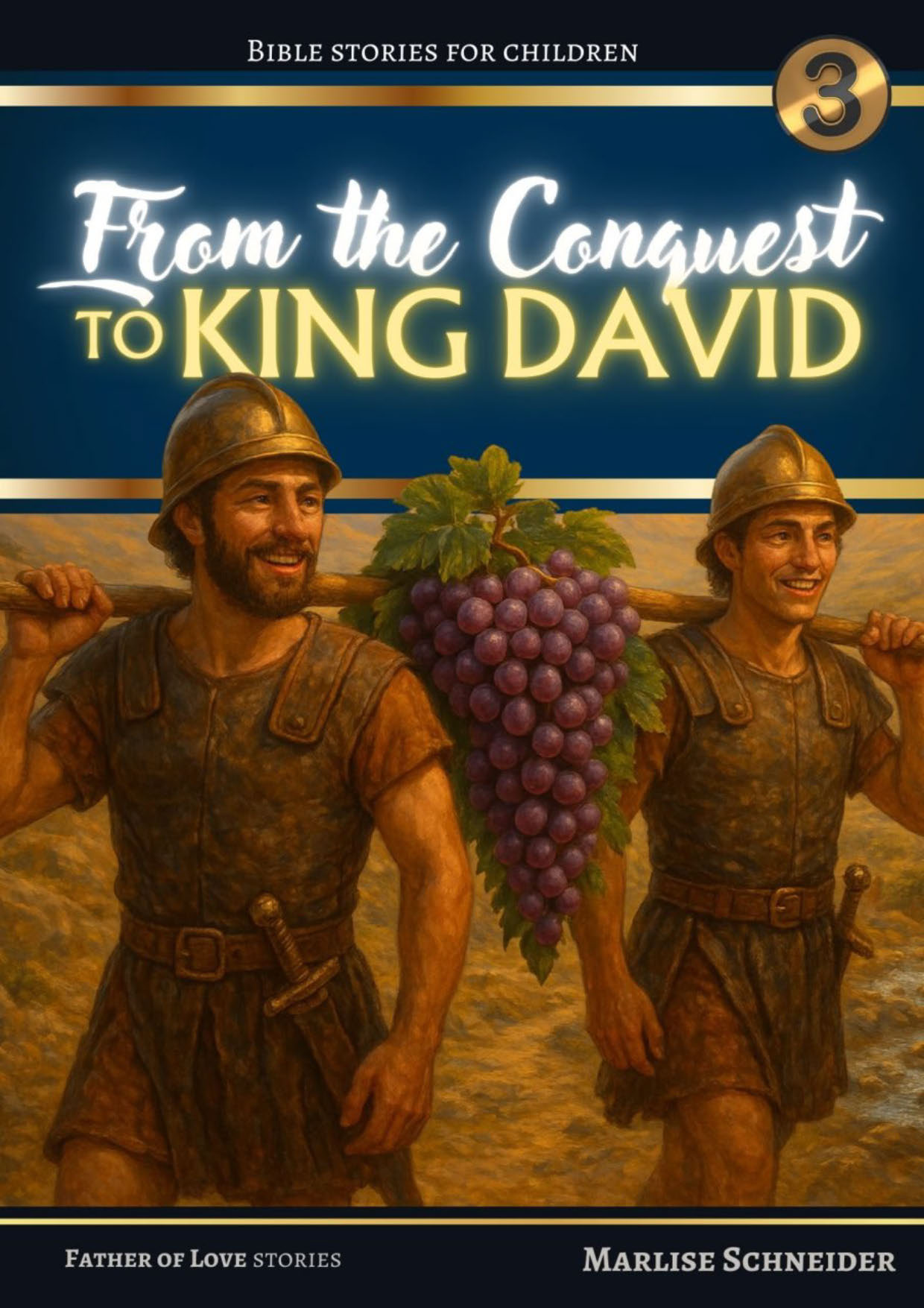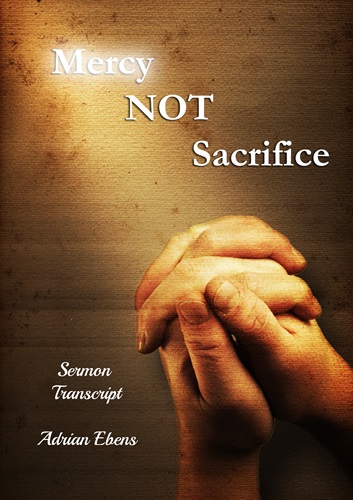St. Nicholas – Theological Enforcer

“He approaches Arius, fist raised menacingly. There are gasps. Would he dare? He would. Fist strikes face. Arius goes down. He will have a shiner.” (1)
Who was the man who struck Arius at the 325 AD Council of Nicaea and what became of him? In studying church history as it relates to the truth about the Father and Son when it came to the Council of Nicaea I had focused on what I thought were the key players. We have an emperor, Sunday sacredness advocate Constantine, who assembled the Council, Arius, the man the church calls the ‘bad guy’, and Athanasios, bishop of Alexandria who, according to namesake Athanasios Paul Thompson, “stood for the Trinitarian doctrine, “whole and undefiled,” when it looked as if all the civilized world was slipping back from Christianity into the religion of Arius…It is his glory that he did not move with the times; it is his reward that he now remains when those times, as all times do, have moved away.” (2)
With that and other glowing recommendations Athanasios is touted as the one who single-handedly saved the day at Nicaea and rescued the church from error. Thanks to COGwriter Bob Thiel I discovered a new person has taken the spotlight. He is being touted as the person who really saved Christendom from the Arians.
A variety of sources tell the story, which is accounted below. References follow the account.
In AD 325 Emperor Constantine convened the Council of Nicaea, the very first ecumenical council. More than 300 bishops came from all over the Christian world to debate the nature of the Holy Trinity. It was one of the early church's most intense theological questions. Arius, from Egypt, was teaching that Jesus the Son was not equal to God the Father. The bishops listened respectfully.
As Arius forcefully argued his position at length, a man arose suddenly to his feet, an obscure, cantankerous bishop named Nicholas. He approaches Arius, fist raised menacingly. There are gasps. Would he dare? He would. Fist strikes face. Arius goes down. He will have a shiner.
Some accounts say Nicholas simply slapped Arius. Either way the bishops were shocked. It was unbelievable that a bishop would lose control and be so hotheaded in such a solemn assembly. Constantine said even though it was illegal for anyone to strike another in his presence, in this case, the bishops themselves must determine the punishment.
The bishops stripped Nicholas of his bishop's garments, chained him, and threw him into a dungeon. Peer down through the bars. Behold the simmering zealot sitting there, scowling, defiant, imprisoned for his uncompromising piety. Recognize his sallow face? No? Well, no reason you should. But he knows you. He’s been to your house many times.
Nicholas was born in Patara, a small town on the Mediterranean coast, 280 years after the birth of Christ. He became bishop of a small town in Asia Minor (modern Turkey) called Myra. Beyond that, details of his life are more legend than fact.
He’s been to your house many times because somehow he transmogrified into Santa Claus, who has become for many people the secular Christmas alternative to Jesus Christ.
St. Nicholas of Myra was nothing close to the Santa Claus of the modern age. Paintings show a thin man. He was spare of frame, flinty of eye, pugnacious of spirit. In the Middle Ages, he was known as a brawling saint. He had no particular sense of humor that we know of. As we’ve seen him demonstrate at the Council, he could be vengeful, and wrathful. He was a curmudgeonly man with a zeal for the Lord that caused flairs of anger. Compromise was unknown to him. The slow transformation of him into “Jolly ole’ Saint Nicholas” is a remarkable recasting of him centuries in the making.
Nicholas was ashamed of his outburst at the Council. In his dungeon cell he prayed for forgiveness, though he did not waver in his belief. Legend has it that during the night, Jesus and the Virgin Mary appeared asking, "Why are you in jail?" "Because of my love for you," Nicholas replied. Jesus then gave the Book of the Gospels to Nicholas. Mary gave him an omophorion, so Nicholas would again be dressed as a bishop. Now at peace, Nicholas studied the Scriptures for the rest of the night.
You can commemorate the event by purchasing a variety of items like this cross with 5 Orthodox icons of Trinity, Jesus, Virgin Mary, St Nicholas, and Guardian Angel.

When the jailer came in the morning, he found the chains loose on the floor and Nicholas dressed in bishop's robes, quietly reading the Scriptures. When Constantine was told of this ‘miracle’, Nicholas was forgiven for punching Arius, and the emperor asked that Nicholas be freed. Nicholas was then fully reinstated as the Bishop of Myra.
Not surprisingly, the council ended up siding with Nicholas and against Arius. His views on the Trinity were vindicated by the adoption of the Nicene Creed, which declares Christ divine. Arius and the bishops unwilling to agree with the Emperor's theology were excommunicated and exiled. Constantine was playing for keeps! A few years later he ordered the burning of the works of Arius and made the mere possession of them a crime punishable by death.
St. Nick died on December 6, thus his feast day is celebrated on that date. With his reincarnation as Santa Claus some today want to give him a new role, that of a theological enforcer because as the original Santa he was someone who flew off the handle when he heard someone minimizing Christ. They say the St. Nicholas slap should become part of today’s Christmas imagery.
Not a violent hit of the kind that got the good bishop in trouble, just a gentle, admonitory tap on the cheek. This should be reserved not for out-and-out nonbelievers, but for heretics (that is, people in the church who deny its teachings), Christians who forget about Jesus, and people who try to take Christ out of Christmas.
This will take a little tweaking of the mythology. Santa and his elves live at the North Pole where they compile a list of who is naughty, who is nice, and who is Nicean. On Christmas Eve, flying reindeer pull his sleigh full of gifts. And after he comes down the chimney, he will steal into the rooms of people dreaming of sugarplums who think they can do without Christ and slap them awake.
And we'll need new songs and TV specials ("Santa Claus Is Coming to Slap," "Deck the Apollinarian with Bats of Holly," "Frosty the Gnostic," "How the Arian Stole Christmas," "Rudolph the Red Knows Jesus").
Here’s one sung to the tune of "Jolly Old St. Nicholas"
Jolly old St. Nicholas,
Lean your ear this way,
Don't you tell a single soul
What I'm gonna say,
We know you were really ticked,
But, you dear old man,
Shouldn't hit the heretic,
Even if you can—
(say sorry, Santa please say sorry)
Arius is gonna know
Why he's teaching wrong,
Nicene council's gonna show
Him a better song.
Here’s one more story from the Council.
When all the bishops were gathered together in Nicaea to decide the great question threatening to split the early church, there were many long speeches. Such meetings can be very tiring. Once during dinner, it looked as if Bishop Nicholas had dozed off, weary of the whole thing and unable to stay awake.
As he slept, Nicholas heard voices calling his name, and, leaving his sleeping body leaning on the table, he followed the voices. After traveling a long way, he came to a place in the middle of the sea. A mighty storm raged, putting a ship in great danger. The sails were shredded and the masts broken as if they were toothpicks. Sailors, clinging to the ship, cried to Nicholas for help.
Nicholas raised his hands" the waves calmed and thunder and lightning stopped. The sun came out over a sea once again calm. The grateful sailors thanked God for their rescue. Nicholas blessed the sailors and, returned.
In Nicaea, awakened at table, Nicholas yawned and rubbed his eyes. Seeing he was now awake, the other bishops said, "So much has happened while you slept, Nicholas. We have missed you, our Brother." "Yes indeed," said Nicholas. "A ship has been saved and many sailors rescued." The bishops, completely unaware of what had happened, thought Nicholas meant that the church was a ship and that the Council had saved the church and its people.
What a triumph for the church. The painting at the beginning of this article, and the cartoon below glorifies the assault of Arius. Its story and the legends around it were presented to subsequent generations as an example to follow.

So, the real meaning of the Council of Nicaea for the Church is found in the little story of Nicholas and Arius: the people with the right doctrine would strike down the people with the wrong doctrine. The Church would never forget this lesson!
What an interesting commentary on a piece of history that still has ramifications for us today. Many reading this know that neither Constantine, Athanasios, St. Nick nor Santa has been able to strike down the faith once delivered to the saints.
Athanasios Paul Thompson laments, “It is indeed a sad reality today that so many anti-trinitarian heresies have resurfaced. Popular religious groups like the Jehovah’s Witnesses and the renegade members and splinter sects of the Seventh Day Adventist church proclaim some form of the Arian heresy so aptly defeated by St. Athanasios.
Surely the legacy of Athanasios lives on within the heart of our Christian faith. It seems to me that earnest believers must better equip themselves to counter those who deny that Jesus is both God and man or that the trinitarian doctrine is not necessary for one to be identified as a Christian. They are very wrong! We must champion the essential truths of Christianity that reveal the nature of God and the nature of man. It seems to me that both religious and social problems within the church could be more easily corrected if we get it right on who God is and what He has done through the doing and dying of the God/Man Jesus on the cross.
Those who toy with historic Christian convictions and entertain "new" theories about God are simply echoing the troubled past of early Christian heresies. Beware all anti-trinitarian believers, your ideas are old and rejected.
One last chorus of a song:
For Arians you can pray now
And hope that they’ll see
That God, who is One,
Is the Trinity.
Though I have rejected the trinity and all it stands for because of the study of Scripture, spirit of prophecy, and church history, my intention in posting this article was to bring to light an event that took place at the Council of Nicaea that I was unaware of, and share what others wrote about that incident.
While some of the imaginations posted here are, I believe, a mockery to God, I wanted to include them to see what our reaction would be. Did anger well up inside to the point that you wanted to defend God by slapping, punching, or telling someone off? Or did you feel a sense of sadness knowing that because of the decrees at the Council it wasn’t long until the church was plunged into the dark ages. Did you want to weep between the porch and the altar sighing and crying for the abominations? Did you, like Jesus, want to cry out to our Father to, “Forgive them for they know not what they do?"
You see I have been guilty of using my tongue to verbally strike down the church and those within it whom I disagree with on the topic of who God is. It is something I have had to repent of. Instead of the virgin Mary visiting me in the prison I had created for myself, the Father and Son opened the doors to a better way by blessing me with the truths found in the pages of Scripture and ministries like Maranatha Media.
Just this morning before posting this I discovered another timely blessing from our Father, “History Repeats – Lessons for us” where brother Adrian states, “We need to exercise care in how we apply past experiences to our own experience. It can be very easy to simply imagine ourselves as one of God’s faithful braving the persecution and trial of those against us when it is possible that we bring a time of trouble upon ourselves by our over confidence in our righteous actions in correcting our brethren.”
My prayer now is that each of us will reflect on our own lives and repent for the part we played, not only in accepting false doctrine, but in our attitude towards the church and others. I want to take brother Adrian’s plea to heart, “Let us learn the lessons of history and realise that no man will go through the final scenes without need for deep repentance and a realisation that his life to that point has been full of mistakes, failures and self-interest.”
I want to come together with my brothers and sisters in humility and pray prayers of repentance like Daniel and Nehemiah. I want to follow the council in 2 Timothy 2:24-25, “And the servant of the Lord must not strive; but be gentle unto all, apt to teach, patient, in meekness instructing those that oppose themselves;”
2 – Athanasios Paul Thompson was quoting C.S. Lewis in his introduction to the book St. Athanasius on the Incarnation.
References:
Monsignor Charles Pope, The Real St. Nicholas – Not Fat and Not Very Jolly Either
Bishop Nicholas Loses His Cool (At The Council of Nicaea)
Gene Edward Veith, Slappy Holiday
Parodies inspired by "Slappy Holiday"
Athanasios Paul Thompson, Ancient Truth Brings Wisdom For Today
St. Nicholas versus Arius by cartoonist George Tautkus
Some accounts list Nicholas as present at the Council of Nicaea and some do not. Some say that his name was not on some lists because he was thrown in jail. Others say his name is missing because he was sleeping and missed some of the Council's deliberations.





